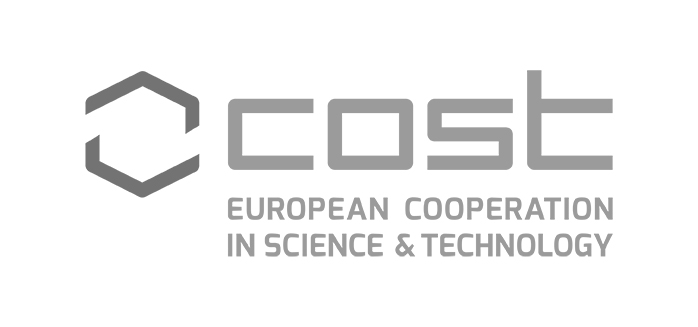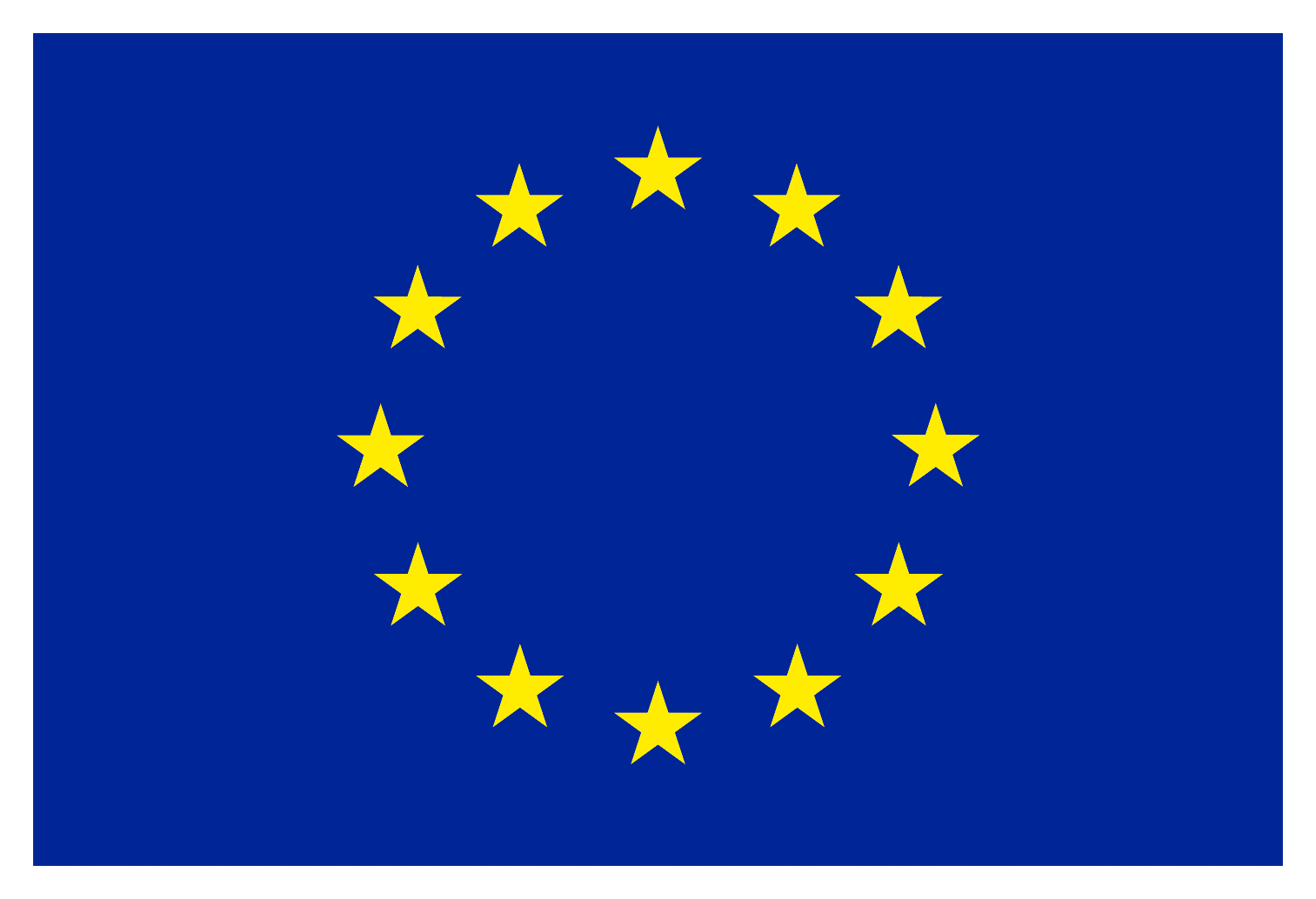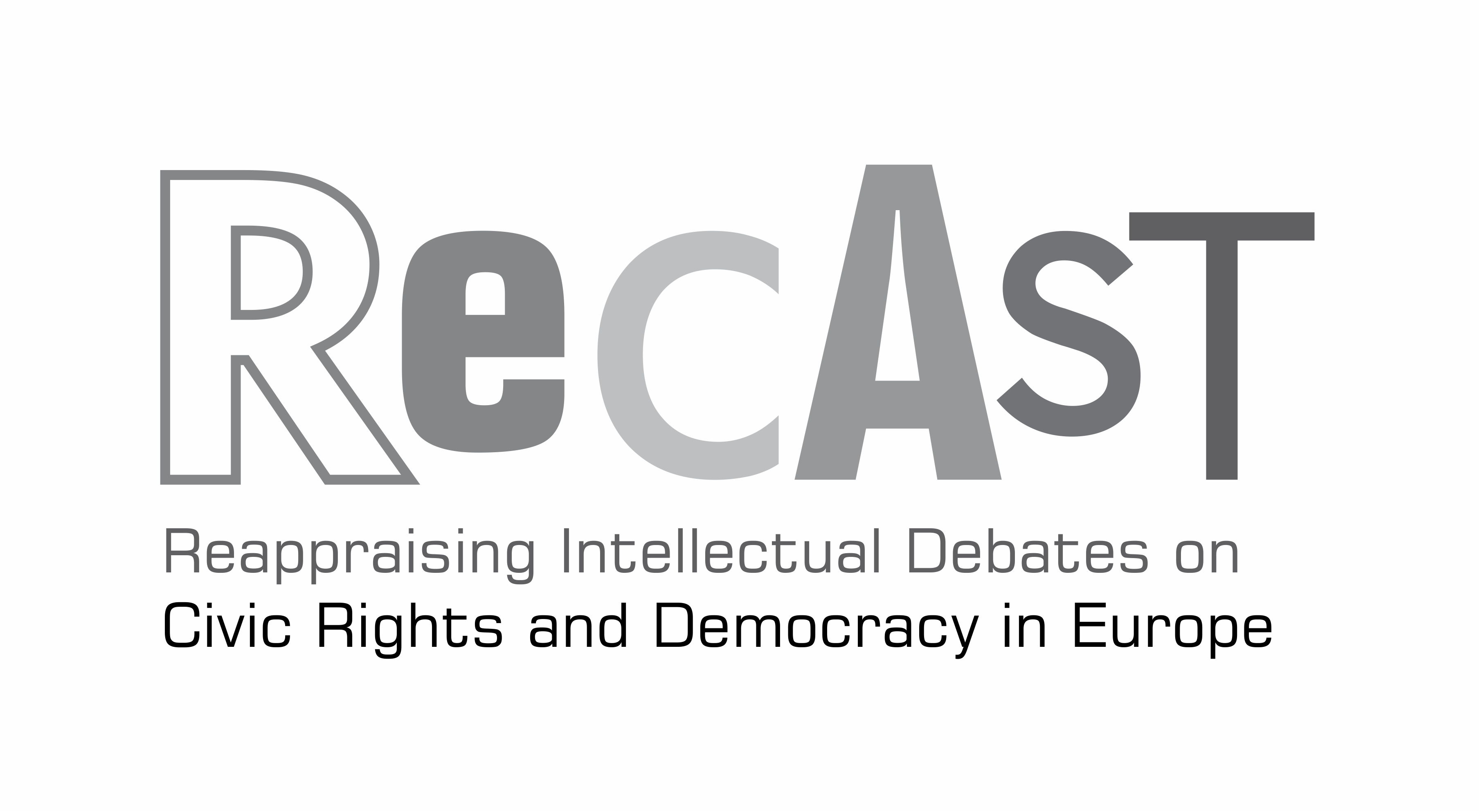WG 2 Workshop 1
COST Action CA 16211 RECAST
Reappraising Intellectual Debates on Civic Rights and Democracy in Europe
Languages and Ideologies 1
Co-organised with the Department of Political Science & Communication Studies of the University of Greifswald, and Concepta: International Research School in Conceptual History and Political Thought, this first workshop of Working Group 2: Languages and Ideologies, of COST Action RECAST, is scheduled for 26-27 February 2018 in Greifswald.
Convened by Rosario López (University of Málaga), Lenka Strnadová (University of West Bohemia) and Rieke Trimçev (University of Greifswald), it explores issues around Re-inventing Liberal Universalisms.
Report
Re-inventing Liberal Universalisms has been the first research workshop of Working Group 2: Languages and Ideologies and, chronologically, the first workshop of COST Action 16211 RECAST.
This two-day workshop was held in Greifswald, hosted by Prof. Hubertus Buchstein in the Department of Political Science and Communication Studies, and organized in cooperation with Concepta: International Research School in Conceptual History and Political Thought.
The overarching theme of the workshop has been liberalism, and the tensions between particularism and universalism in its diverse historical and contemporary manifestations. We were interested in exploring more in depth how the rhetoric of liberal universalism has been undone and re-invented, both in history and in recent times. The workshop thus addressed one of the main goals of the Working Group, that is, the rhetorical manifestations of liberalism as an ideology, and how these are unfolded in public action.
At the workshop, a total of fourteen papers were presented, bringing together scholars and experts from the Czech Republic, Finland, Georgia, Germany, Israel, Poland, Portugal, Spain, Sweden, and the United Kingdom. Prof. Michael Freeden (SOAS University of London and University of Oxford) delivered the keynote speech.
On Monday, 26 February, four sessions and the keynote lecture were scheduled. At the first session, two papers highlighted the limits and potential of rhetorical analyses. “Liberalism, Universalism, and Rhetoric”, by Jussi Kurunmäki (Södertörn University & University of Helsinki) and Jani Marjanen (University of Helsinki), and “The Liberal Universalism of the Young Turks”, by Banu Turnaoğlu (University of Cambridge).
Session two was devoted to non-Western perspectives and receptions of liberalism, with papers by Wael Abu-’Uksa (Hebrew University of Jerusalem) on “The Language of Liberalism in 19th-Century Arabic: A Conceptual Approach,” and Alexander Weiß (Helmut Schmidt University, Hamburg) on “The History of non-Western Reception of Liberalism and the Question of Universality.”
After lunch, the attention shifted to two nineteenth-century British liberals, John Stuart Mill and Richard Cobden, with papers authored by Nic Miller (University of Lisbon) and Rosario López (University of Málaga), and titled respectively “John Stuart Mill and His Discussants in Hawaii: Liberalism and the Question of Contract Labour” and “Richard Cobden’s Liberal Mission and the Quest for Universal Peace.”
The reception of liberalism in Georgia and Albania dominated the conversation during the next session. Bakar Berekashvili (Georgian American University, Tbilisi) presented a paper on “Imitative Order of Liberal Rhetoric: The Case of Post-Soviet Political Language,” and Eno Trimçev (University of Greifswald) contributed with a presentation titled “‘Into the Hall of Mirrors’: The Re-Invention of Liberalism in Albanian Intellectual Discourse.”
The day closed with Michael Freeden’s keynote speech, aimed at the general public, on “Liberal Universalism? Check the Small Print First.” In his speech, Prof. Freeden addressed the often uneasy and far from self-evident conjunction between liberalism and universalism. He examined the implicit limits of universalism within different liberal languages and ideological transformations, suggesting that for liberalism the notion of ‘the ubiquitous’ (understood as widespread or prevalent), with regard to norms and rights, is a much more viable idea than ‘the universal’ (in its holistic, exceptionalist sense).
On Tuesday, 27 February, the first section addressed the problematic of illiberal ideas within liberal ideologies. To this aim, two papers were presented. The first one on “Liberalisation of Democracy in Post-1989 Poland: Imposition, Adaptation, and Rejection?,” by Wojciech Ufel (University of Wrocław), and a second one on “Illiberal Discourses of Liberal Regimes: CAQDAS of Presidential and Electoral Discourse in Czech Republic,” by Petr Krčál (University of West Bohemia, Pilsen).
In the following session, papers presented by Lenka Strnadová (University of West Bohemia, Pilsen) “The Construction of Liberalism within Postcommunist Societies: Exploring the Epistemic Limits of Liberal Democracy” and Rieke Trimçev (University of Greifswald) “The Liberalism of Fear in America: Situated Universalism in Judith N. Shklar” juxtaposed different views on justifying and motivating liberal norms and conduct (liberal perfectionism and liberal scepticism) and also in both cases, highlighted the situated nature of liberalism as a theory the formulation of which is highly historically and culturally embedded.
The seventh session of the programme focused on two of the current challenges of liberalism: the rise of populisms and global migrations. Victor Kempf (Goethe University, Frankfurt) gave a paper on “Radical Rescue: Liberal Democracy, the Threat of Right-wing Populism, and Post-Marxist Counter-Strategies,” and Karsten Schubert (University of Bremen) on “The Challenge or Migration: For a New Liberal Universalism. A Critique of Christoph Menke’s Radical Republicanism.”
The workshop closed with a business meeting, recapitulating first some of the discussions held during the meeting – all papers were followed by thought-provoking questions and fruitful debates and conversations; and then outlining some prospects for future cooperation in the framework of Working Group 2: Languages and Ideologies.
(Please note this report complements the programme.)
Rosario López, University of Málaga
Lenka Strnadová, University of West Bohemia
Rieke Trimçev, University of Greifswald
 |  |  |  |



